The spanish novelty in America: the contribution of the Spanish Crown
DOI:
https://doi.org/10.51743/cih.322Keywords:
Latin América, humans rights, Hispanic America, Catholic MonarchAbstract
This article helps us to understand the importance of analysing the subject of the Discovery over and above the Conquest because, in a very few years, what Julián Marías calls the Spanish "graft" was established, making two cultures merge and contribute the best of each one. The Catholic Monarchs and, in particular, Queen Isabel, from the outset, treated them as free subjects of the Crown of Castile, recognising the dignity of every human person, supported by the School of Salamanca and the Laws of Burgos.
Bartolomé de Las Casas, who was very critical of the process, nevertheless began in New Spain as owner of encomiendas. The fact that he denounces breaches of the laws promoted by the Queen indicates that the Spanish Crown worked for the rights of the natives, and we even know, with a critical apparatus, that these denunciations were dealt with through an articulated system.
In this article, it is important to present the fathers of Salamanca as predecessors of human rights in order to understand the rights and liberties that, since Father Vitoria, made new approaches possible.
At present there are no historians of reference who uphold the Black Legend.
Downloads
References
ALCINAFRANCH, J., El indigenismo en la actualidad, en Gazeta de Antropología, 1988, 6, artículo 01.
AZCONA, T. de, Isabel la Católica. Vida y reinado. Madrid, 2002.
CANAL FUNDACIÓN UNIVERSITARIA ESPAÑOLA. (23 de noviembre de 2021). La Corona y los pueblos americanos sesión tercera [Archivo de Vídeo]. Youtube. https://www.youtube.com/watch?v=BYLNS0YdwkI
CARRO, V. “The Spanish Theological-Juridical Renaissance and the Ideology of Bartolomé de las Casas”, en Bartolomé de las Casas in History: Towards and Understanding of the Man and His Work, Juan Friede y Benjamin Keen (eds.), Northern Illinois University Press. 1971
CASTELLO VIDAL, A., Estudio preliminar a Fray Bartolomé de las Casas: Apologética historia Sumaria I. Obras Completas, Vol. 6, Madrid, Alianza Editorial, 1992
CASTRO QUESADA, A. Aspectos del vivir hispánico. Alianza. Madrid,1987.
CASTRO, C.; Pazos, M. Permisos de paternidad, maternidad y parentales en Europa. Papeles de trabajo del Instituto de Estudios Fiscales, nº 76. 2007. Diccionario de la Real Academia Española,
DE LAS CASAS, B. Doctrina, UNAM México, 1992.
FERNÁNDEZ MANJÓN, D. La identidad europea, la aportación española. Visión libros, Madrid, 2008
GARCÍA VIDAL, J.D. La Escuela de Salamanca, 2020, Libertank. Disponible en https://youtu.be/uwHoXO3GXjI?t=396
GONZÁLEZ FERNÁNDEZ, E. Pensar España con Julián Marías. Madrid, 2012, RIALP
LEÓN PORTILLA, M. La visión de los vencidos. UNAM. México, 1959
LÓPEZ DE GÓMARA, F. Historia general de las Indias. 1555
LUMMIS, C. F. Los exploradores españoles del siglo XVI: vindicación de la acción colonizadora española en América. Casa Editorial Aráluce. Barcelona, 1922.
MARÍAS, J. El Nuevo Mundo: trasplante o injerto. ABC, 22-3-2001
MARIAS, J., Curso «Visión trascendental de Europa», Instituto de España, 1992-93. Disponible en https://larealidadensuconexion.blogspot.com/2017/07/vision-transversal-de-europa.html#more
MARÍAS, J., La educación sentimental. Alianza Ed., Madrid, 1993.
MARÍAS, J., La España inteligible. Alianza Ed., Madrid, 2005
MENÉNDEZ PIDAL, R. ¿Codicia insaciable? ¿Ilustres hazañas?, en «Revista Escorial», n.1, Madrid, 1940.
MENÉNDEZ PIDAL, R. El Padre Las Casas. Su doble personalidad. Espasa-Calpe, Madrid, 1963.
MIRALLES, J. La Malinche. Tusquets, Barcelona, 2004.
MONTOJO SÁNCHEZ, L. La mujer peninsular en la Nueva España en el siglo XVI. Fundación Universitaria Española. Madrid, 2017
MORANT, Isabel, Et All, (2005), Historia de las Mujeres en España y América Latina, V. I. Madrid, Ediciones Cátedra, Grupo Anaya
PALACIO, E. Historia de la Argentina: 1515-1976. Abeledo Perrot. Buenos Aires, 1984
PAVÓN CUÉLLAR, D., Cantoral Pozo, A., y Juárez Salazar, E. M., La psicología crítica de Fray Bartolomé de las Casas: caracterización apologética de los indígenas y elucidación lógica del racismo, en Teoría y crítica de la psicología, 1, 2011.
PEREZ, J. La leyenda negra. Gadir, 2009.
PÉREZ-BUSTAMANTE, R. “Las Leyes de Burgos de 1512. Estudio jurídico e institucional” en Leyes de Burgos de 1512, Burgos 1991.
RATZINGER, J. Introducción al cristianismo. Sígueme, Barcelona 2013
RUMEU DE ARMAS, A. La Política indigenista de Isabel la Católica. Instituto "Isabel la Católica" de Historia Eclesiástica. Aldecoa, Valladolid, 1969
SÁNCHEZ, L. Testamento de Isabel la Católica, edición preparada con motivo del V Centenario del matrimonio de los Reyes Católicos. Gráficas Pérez Galdós, Madrid, 1969. Testamento de Carlos V.
SOLANO, F. de. Cedulario de tierras. Compilación. Legislación agraria colonial (1497-1820). Instituto de Investigaciones Jurídicas. Universidad Nacional Autónoma de México. Primera edición: 1984. Segunda edición: 1991. México.
THOMAS, H. El imperio español. De Colón a Magallanes. Madrid, 2003.
VERES, L., Relectura del indigenismo, en Espéculo: Revista de Estudios Literarios, Nº. 38, 2008
WOODS, T. Cómo la Iglesia construyó la civilización occidental. Ciudadela libros, Madrid 2007
Downloads
Published
How to Cite
Issue
Section
License
The Fundación Universitaria Española publishing house preserves the patrimonial rights (copyright) of published works, and encourages and allows their reuse. The works are published in the electronic edition of the journal under a license “Creative Commons Atribución/Reconocimiento-NoComercial 4.0 Licencia Pública Internacional — CC BY-NC 4.0”, and can be copied, used, disseminated, transmitted and publicly exhibited, provided that : a) the authorship and original source of its publication is cited (journal, publisher and URL of the work); b) are not used for commercial purposes; c) the existence and specifications of this license of use are mentioned.
The author / s partially transfer the property rights (copyright) of this work to the Fundación Universitaria Española (Spain) (NIF: G28433670), for the printed and online editions.
It also declares to have respected the ethical principles of research and to be free from any conflict of interest.
«C.I.H.» encourages the authors and the scientific community to the maximum promotion and dissemination of the works in their final version through:
1) Your list of contacts (emails) and social networks (Facebook, Twitter, LinkedIn ...).
2) Institutional repository of your University and public repositories (Mendeley, Cosis ...).
3) Scientific social networks (ResearchGate, Academia.edu, Kudos ...).
4) Personal or institutional website, blog, etc.
5) Google Scholar, ORCID, ResearchID, ScopusID, Dimensions, PlumX ...
6) Printed copies purchased directly and sent to specialists for reading and subsequent citation if appropriate.
For the nomination of future articles by authors of "C.I.H.", the impact of previous works will be taken into account, so that those with citation higher than the annual average of the journal will be preferred.






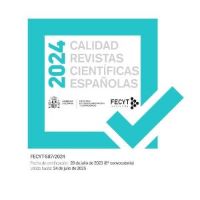




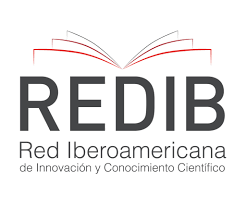
2.jpg)


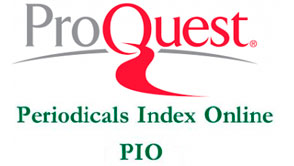
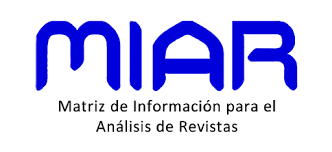








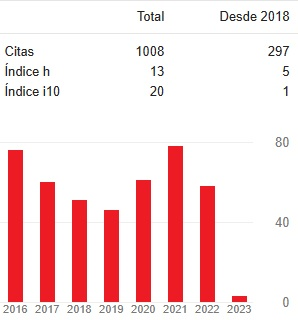



1.png)
1.png)

1.png)


.png)
.png)

.png)
1.png)
1.png)
